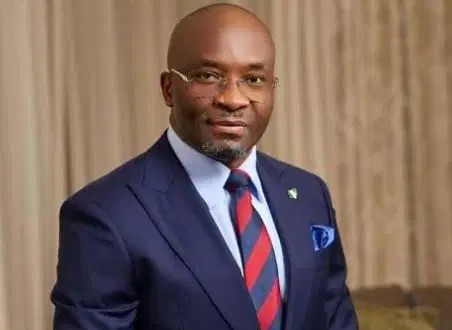The Deputy Speaker of the House of Representatives, Benjamin Kalu, has withdrawn a controversial bill on indigeneship following a storm of public backlash and expert recommendations.
Kalu, who also chairs the House Constitution Review Committee, pulled the proposed legislation after receiving what he described as “constructive feedback” from stakeholders and a critical analysis from the National Institute for Legislative and Democratic Studies (NILDS).
In a statement signed by his Chief Press Secretary, Levinus Nwabughiogu, on Tuesday, Kalu explained that while the bill was originally intended to promote national unity, equality, and inclusiveness for all Nigerians regardless of state of residence, emerging concerns necessitated its withdrawal for further consultations.
“The feedback we have received from constituents, experts, and civil society shows that although the bill carries noble intentions, it also raises serious legal and administrative challenges,” Kalu said.
According to the NILDS report, one of the key risks flagged was the possibility of “double or multiple indigeneship,” which could complicate the implementation and integrity of citizenship and residency policies in Nigeria.
The bill had proposed equal rights for all Nigerians living in any part of the country, urging state legislatures to grant settlers the same privileges as indigenes—especially in areas such as education, employment, and political participation.
However, analysts noted that enforcing such a law uniformly across states could trigger conflicts over resource sharing, representation, and identity.
“States should make laws that would allow settlers to benefit from the same rights and privileges enjoyed by indigenes, without any form of discrimination, as rightly provided for in the constitution,” part of the NILDS analysis stated.
Despite shelving the bill, Kalu reaffirmed his commitment to the broader goal of national unity and constitutional inclusiveness. He also assured Nigerians that the Constitution Review process would remain participatory and citizen-driven.
“As leaders and representatives, we must ensure that every legislative proposal reflects the true aspirations of the people,” he said. “No provision will be pursued without adequate dialogue and consensus-building.”
He encouraged Nigerians to continue engaging with the Constitution Review Committee, emphasizing that the National Assembly remains open to refining the proposal in a way that aligns with public interest and legal clarity.
The now-withdrawn indigeneship bill has stirred intense debate in recent weeks, with ethnic, regional, and legal groups weighing in on the sensitive implications of reclassifying the rights of residents vis-à-vis indigenous populations across Nigeria’s 36 states.
Do you want to share a story with us? Do you want to advertise with us? Do you need publicity for a product, service, or event? Contact us on WhatsApp +2348183319097 Email: platformtimes@gmail.com
We are committed to impactful investigative journalism for human interest and social justice. Your donation will help us tell more stories. Kindly donate any amount HERE




